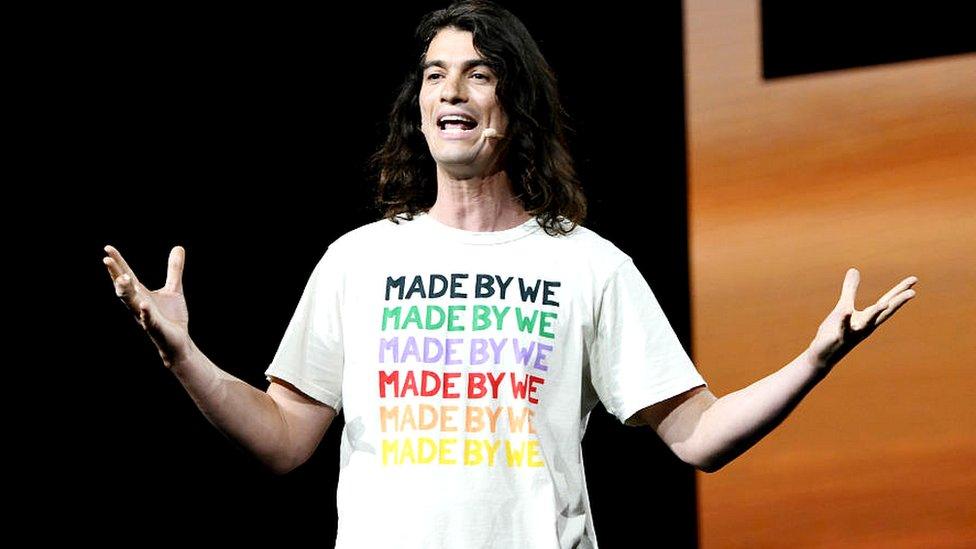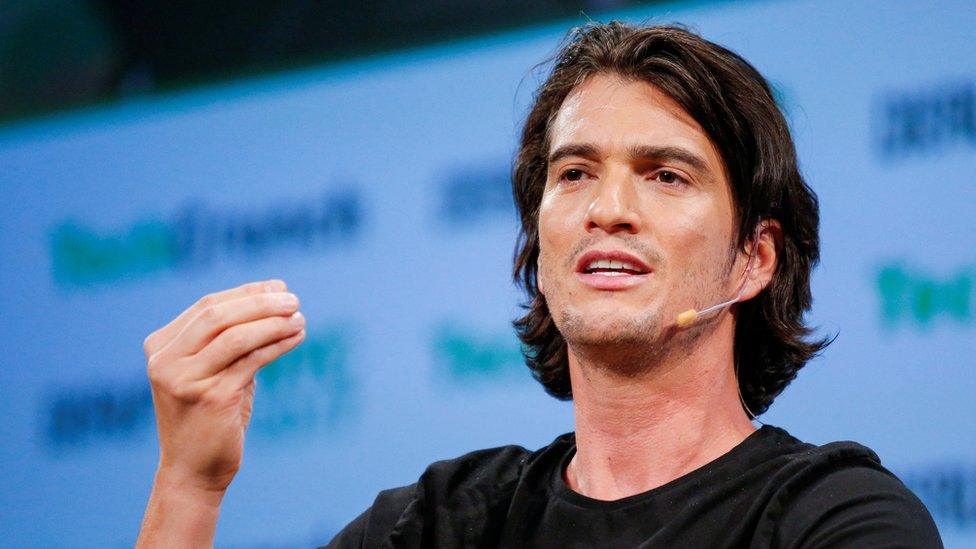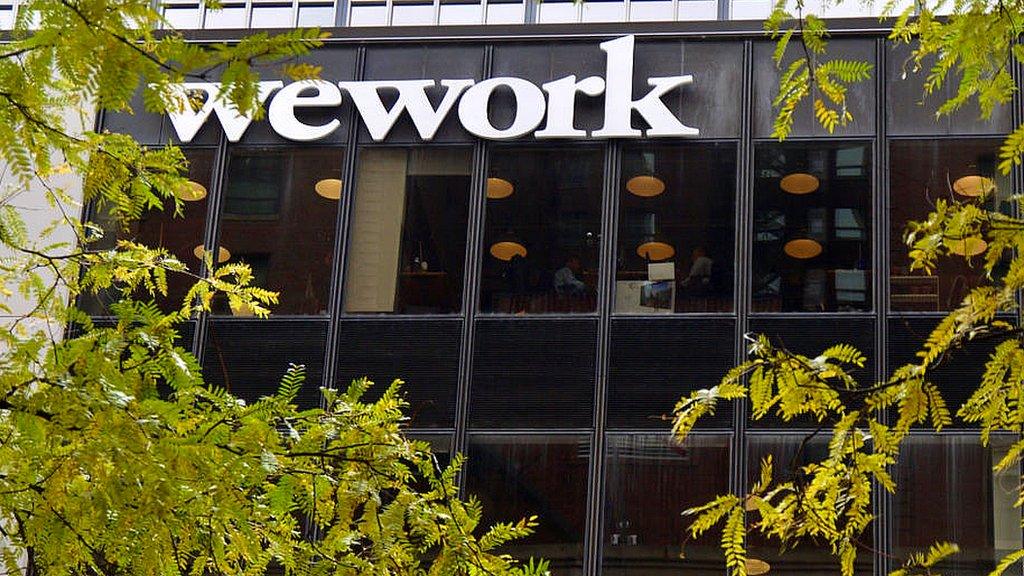WeWork's Adam Neumann quits as chief executive
- Published

Adam Neumann is co-founder of the We Company
WeWork's Adam Neumann has agreed to step down as chief executive of the trendy office rental firm saying it's in the "best interests" of the company.
The decision is effective immediately, the firm said. He will remain with the company as non-executive chairman.
Scrutiny of his leadership had "become a significant distraction," it said.
The move comes after WeWork's plans for a stock market listing ran into trouble, with investors raising concerns about losses and governance.
"While our business has never been stronger, in recent weeks, the scrutiny directed toward me has become a significant distraction, and I have decided that it is in the best interest of the company to step down as chief executive," Mr Neumann said in a statement.
WeWork's board of directors said it had named WeWork's Artie Minson, formerly co-president and chief financial officer, and Sebastian Gunningham, formerly vice chairman, co-chief executives of the company.
Mr Neumann built WeWork in his own image, creating a buzzy, multi-billion dollar company known for its co-working spaces, free-flowing alcohol and a stated mission to "elevate the world's consciousness".
Since 2010, the firm has expanded from a single office in New York City to more than 500 locations in 29 countries. Japanese investment giant Softbank valued the company at $47bn (£37bn) in its most recent investment round.
But Mr Neumann's brash charisma, which once attracted investors, emerged as a liability as WeWork decided to sell its shares on the public market. Reports suggest the firm's expected valuation had sunk to between $10bn and $12bn.
Reports surfaced detailing erratic decision making and the ways his hard-partying habits had infused corporate culture.
Perhaps most alarming to potential investors were the ways Mr Neumann had blurred the lines between his own personal finances and WeWork.
For example, over the years, the company had been a tenant in some properties that he owned; and Mr Neumann, who had voting control of the company, had also secured personal loans using company stock as collateral.
"I think many investors are uncomfortable with Neumann's relationship with the company," Sam Reynolds, a technology analyst, told the BBC.
Changing roles
Mr Neumann agreed to modify some of those arrangements as it became clear that he was losing support from major backers, such as Softbank.
For example, he returned the $5.9m in stock he received for selling WeWork the trademark "We" and agreed to give WeWork any profit from properties he owns that the company leases.
His wife Rebekah, a WeWork co-founder who had been given the power to identify a successor, also had her role reduced.

Mr Neumann's wife Rebekah is co-founder and chief brand officer at WeWork but her role is controversial
Mr Neumann has reportedly also agreed to significantly reduce his voting powers. But even that move and his role change may not assuage concerns about the company, which lost nearly $2bn last year.
Market sentiment has turned, after shares in other high-profile, loss-making start-ups such as ride-hailing apps Uber and Lyft, have crashed following flotation.
And critics have long complained that WeWork's financials don't make sense, pointing to the firm's losses and the much lower valuations of similar companies such as rival IWG, which used to be known as Regus.
WeWork "is a property company trying to sprinkle tech company fairy dust over itself," said Richard Kramer, founder of Arete Research. "That won't work with investors."
The company was relying on its stock market launch to unlock new loans, which means its delay could spell trouble.
Mr Reynolds said he expected the company to remain privately held for the foreseeable future.
"I think the IPO will be delayed indefinitely," he said. "WeWork certainly has a future, but not as a public company."
Who is Adam Neumann?
Born in Israel, Mr Neumann served in the Israeli Navy before moving to New York to "get a great job, have tons of fun and make a lot of money", as he put it in a 2017 TechCrunch interview.
He enrolled at Baruch College at the City University of New York in 2002, but dropped out just shy of graduation to go into business.
One of his early ventures was a baby clothing company that evolved into the luxury Egg Baby brand.
Later, he and business partner Miguel McKelvey, an architect, renovated an office space and sublet the property. They sold the business but the idea grew into WeWork.
- Published25 September 2019

- Published13 September 2019

- Published17 September 2019

- Published10 September 2019

- Published5 May 2019
